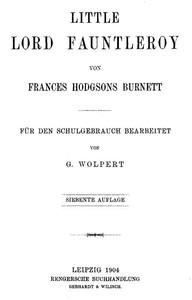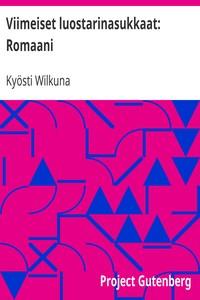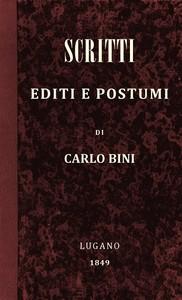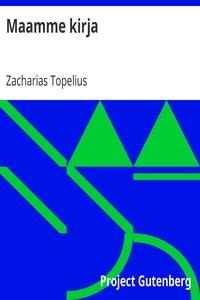Read this ebook for free! No credit card needed, absolutely nothing to pay.
Words: 202826 in 58 pages
This is an ebook sharing website. You can read the uploaded ebooks for free here. No credit cards needed, nothing to pay. If you want to own a digital copy of the ebook, or want to read offline with your favorite ebook-reader, then you can choose to buy and download the ebook.
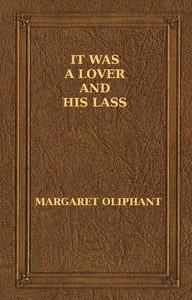

: It was a Lover and His Lass by Oliphant Mrs Margaret - Scotland Social life and customs 19th century Fiction
IT WAS A LOVER AND HIS LASS
IT WAS A LOVER AND HIS LASS.
There stands in one of the northern counties of Scotland, in the midst of a wild and wooded landscape, with the background of a fine range of hills, and in the vicinity of a noble trout-stream, a great palace, uninhabited and unfinished. It is of the French-Scottish style of architecture, but more French than Scotch--a little Louvre planted in the midst of a great park and fine woods, by which, could a traveller pass, as in the days of Mr. G. P. R. James, on a summer evening when the sun had set, and find himself suddenly face-to-face with such an edifice amid such a solitude, the effect even upon the most hardened British tourist would be something extraordinary. There it stands, white and splendid, raising its turreted roofs, such a house as a prince might live in, which would accommodate dozens of guests, and for which scores of servants would be needful. But all naked, vacant, and silent, the glassless windows like empty sockets without eyes, the rooms all unfinished, grass growing on the broad steps that lead up to the great barricaded door, and weeds flourishing upon the approach.
Round about it are avenues of an exotic splendour, like the building, tall araucarias of kin to nothing else that flourishes in Scotland, blue-green pines of a rare species, and around these, in long-drawn circles, lines of level green terraces, upon which you can walk for miles--terraces more fit for Versailles than for Murkley, where the grass is generally wet, and promenades of this kind not very practicable for the greater part of the year. The pines have taken hold of the soil, have thriven and flourished, the araucarias are unequalled in Great Britain. Nature and the landscape have assimilated them, and made them free of the country in which they are to stand for ages. But the house, being due to human-kind, cannot be thus assimilated. No kindly growth, naturalizes it, no softening of years makes it fit into its place. It is too big and imposing to be run over by honeysuckles and roses like a cottage; it stands like a ghost among all the paths that lead to its blocked-up door. The rows of melancholy openings where windows ought to be glare out in their emptiness, in contrast with that door which never opens, and makes all natural access to the place impossible. An army of tramps might clamber in at the windows, and make carnival in the vacant rooms, but the master of the house could not without an organized assault find admittance in the recognized way. At night, or when the evening glooms are falling, nothing can be more startling than to stray into the presence of this huge thing, which is not a habitation, and which seems, all complete yet so incomplete, to have strayed into regions quite uncongenial and out of sympathy with it, where it stands as much out of its element as a stranded boat.
But all the same there is nothing ghostly or terrible about Murkley Castle. It involves no particular mystery of any kind--nothing but the folly of a man who built a house without counting the cost, and who found himself without means to complete, far less enjoy, the palace he had constructed. Not the less is it a strange feature in the landscape, and it would be still stranger if popular superstition did not see sights and bear sounds in it of nights, for which the wiser persons in the country declared they could not account, though of course they did not believe in anything supernatural. This was the reason given by the driver of the gig from the "George" at Kilmorley for the round he wanted to make on a certain June night in the lingering daylight, as he conducted the gentleman reckoned as No. 5 in the books at the 'George' to Murkley village, where this ill-advised person, not knowing when he was well off, as the "George" was of opinion, meant to establish himself at the village inn, which was no better than a public-house.
"It's no from ony superstition," the driver said. "I'm no a man, I hope, to be feared for ghosts; I'm mair feared for flesh and blood. I've a good watch in my pocket, and life's sweet, and if it's tramps, as is maist likely, that have a howff in the auld castle, and mak' a' thae noises to frichten the countryside, the mair reason, say I, to gi'e the auld castle a wide berth."
He spoke with a slight accent which was foreign, but which the countryman took to be "high English:" and had certain little foreign ways, which Duncan was not clever enough to understand. He responded, cautiously,
"But, man alive!" cried the stranger, "you're not afraid of ghosts in broad daylight."
This lucid description gave our traveller great pleasure.
"I had not thought of that," he said, "but it is quite true. Here is a half-crown for you, if you will drive by Murkley--is it Murkley you said?"
"You kent a' about Murkley when you made up your mind to make your habitation there," said Duncan, with a glance of suspicion. "If you ken the village, ye maun ken the castle. They're ower proud to have such a ferly near them, thae ignorant folk."
"You don't mean to win the half-crown," said the other, with a good-humoured laugh.
Free books android app tbrJar TBR JAR Read Free books online gutenberg
More posts by @FreeBooks

: Little Lord Fauntleroy [abridged]: Für den Schulgebrauch bearbeitet by Burnett Frances Hodgson Dickmann Otto E A Otto Emil August Editor Wolpert Georg Editor - Conduct of life Juvenile fiction; Children Conduct of life Juvenile fiction; Family Juvenile fi
